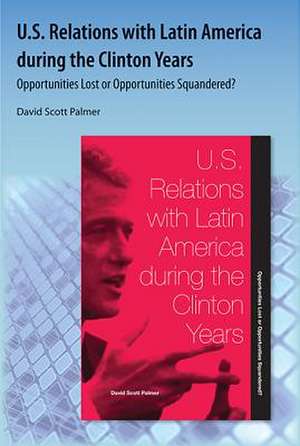U.S. Relations with Latin America During the Clinton Years: Opportunities Lost or Opportunities Squandered?
Autor David Scott Palmeren Limba Engleză Paperback – 28 feb 2010
Preț: 153.31 lei
Nou
Puncte Express: 230
Preț estimativ în valută:
29.34€ • 30.55$ • 24.80£
29.34€ • 30.55$ • 24.80£
Carte tipărită la comandă
Livrare economică 10-24 martie
Preluare comenzi: 021 569.72.76
Specificații
ISBN-13: 9781616101428
ISBN-10: 1616101423
Pagini: 144
Dimensiuni: 152 x 229 x 9 mm
Greutate: 0.22 kg
Editura: Orange Grove Texts Plus
ISBN-10: 1616101423
Pagini: 144
Dimensiuni: 152 x 229 x 9 mm
Greutate: 0.22 kg
Editura: Orange Grove Texts Plus











